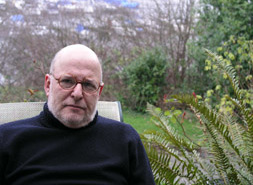A Quote by Jonathan Galassi
Related Quotes
Okay, this is Fran Lebowitz. She gave an interview once for the Paris Review about trying to write fiction and saying that fiction writers start talking about how characters are talking to them, and it's crazy, she's never had that. And I also thought, I'm never gonna be able to do this, because I didn't feel that for a really long time.
I know people who have suffered writer's block, and I don't think I've ever had it. A friend of mine, for three years he couldn't write. And he said that he thought of stories and he knew the stories, could see the stories completely, but he could never find the door. Somehow that first sentence was never there. And without the door, he couldn't do the story. I've never experienced that. But it's a chilling thought.
Many years ago I had two small children, and I wanted to be able to be home when they got home from school. And I didn't like the direction journalism was taking. I thought if I could write books, I could work at home and have the best of both worlds. I wrote my first mystery while still working full time, and it didn't sell, but the next one did sell, so I quit my job for the world of fiction. Scary, but I've never regretted it for a single day.



































